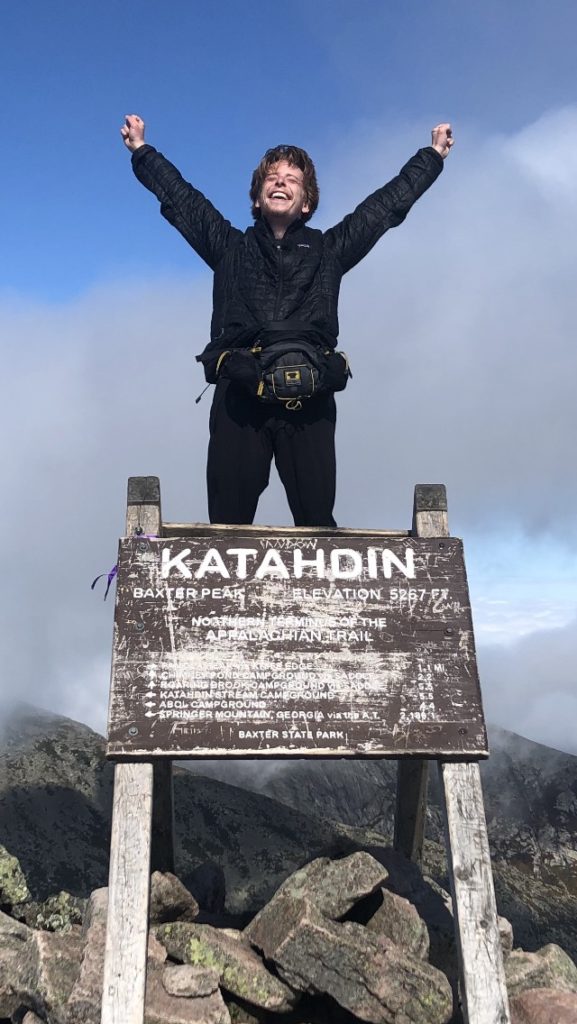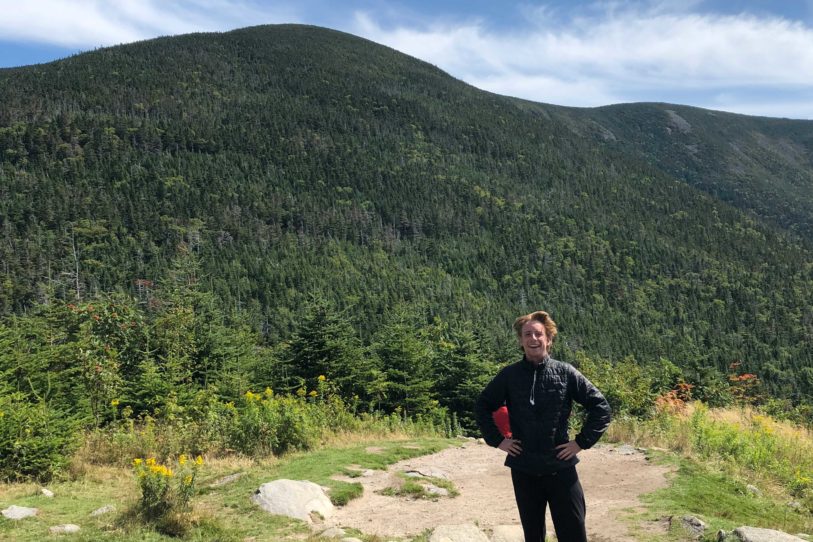Early this spring, alumnus Mack Willingham ’11 undertook a journey that many speak of, few begin, and even fewer accomplish. With over 2,200 miles from start to finish, the Appalachian Trail runs between Springer Mountain in Fannin Country, Georgia, and Mt. Katahdin in Millinocket, Maine. It is estimated that 2-3 million visitors each year hike a mountain or section of the trail system annually. By current count, just over 20,000 thru-hikers have completed the full trail since records began in 1936.
The challenge for many comes with the question of whether they can accomplish such a goal. For any number of reasons, people may miss or hold themselves back from such an opportunity. Thank you, Mack, for sharing details of this epic adventure, illustrating what it means to take a healthy risk on a dream, and for your advice to those who may seek this path.
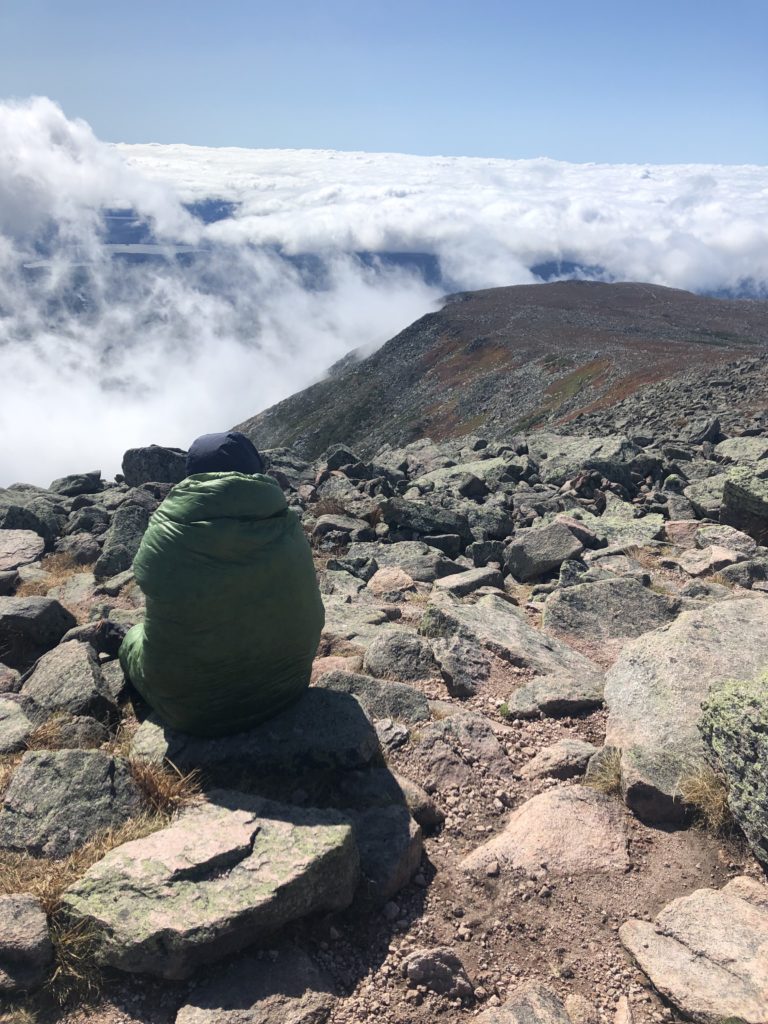
Why did you choose to hike the AT?
Hiking the Appalachian Trail was a lifelong dream of mine. I first noticed the trail hiking in New Hampshire as a young kid with my family. The AT goes through the best parts of the White Mountains, so I frequently found myself on it when we went hiking as a family. I remember thinking as a kid how crazy it was that the trail I was standing on ran all the way down to Georgia.
A few years ago, my uncle Chris Willingham passed away unexpectedly, and it was a huge loss for my family. He was an avid outdoorsman and was an adventurous spirit who lived on the wild side of life. Around the time of his death, as a sort of tribute, I hiked the Lafayette ridge, which, for those who haven’t gone up there, is a spectacular, one of a kind place and also, famously, on the Appalachian Trail. On that day, at the summit of Mt. Lafayette, I remembered the things I had thought about as a kid—that a trail could go all the way to Georgia and how crazy of an adventure it must be to walk it. I made a pact then to drop what I had been doing and hike the Appalachian Trail. I started planning my hike that day and spent the next two years getting ready—saving money, buying gear, and, eventually, quitting my job, getting out of my lease, et cetera.
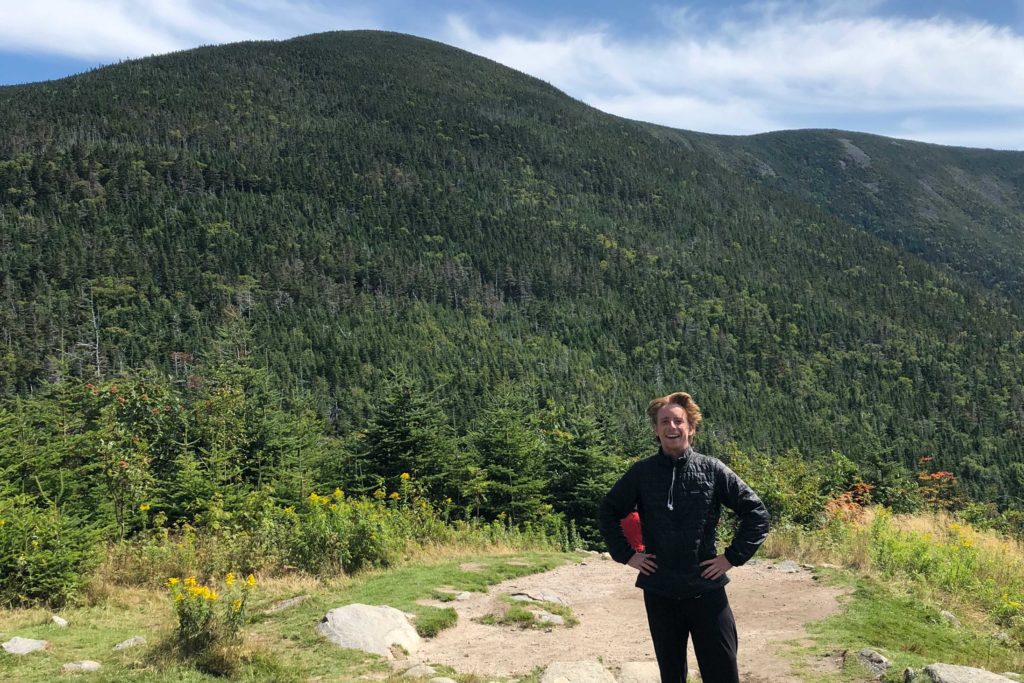
Did you gain a trail nickname?
Yes. It’s a tradition on the AT to accept a “trail-name.” It’s a way of embracing the journey and culture of the trail, and trail-names are meant to be fun. I didn’t meet anyone on the trail who didn’t get a trail-name. Even stubborn people who didn’t want anything ridiculous would throw “Just” in front of their first name, such as “Just-Jim” or “Just-Jill.”
My trail-name was “Spanky.” My trail friends were amused that I had been an Acting Major in college, and I made the mistake of telling them a story about a “Clowning” class I had to take in order to graduate. My clown name was “Spanky,” and I was a rock n’ roll party clown of sorts, performing such gags as misplacing my invisible air guitar and breaking my foot kicking amplifiers. I ended up performing as a clown a few times for fun for a few trail friends.
A few other notable trail-names I came across included:
- LaF: Stands for “Lost and Found” who had a knack for finding other people’s lost belongings.
- Coinstar: Brought a 5-pound bag of coins in their backpack with them on accident and found it after hiking with it for weeks.
- Bear Punch: Punched a bear on the nose that snuck into his shelter at night.
- Lucky Strike: Was struck by lightning on an exposed ridgeline and lived to tell the tale.
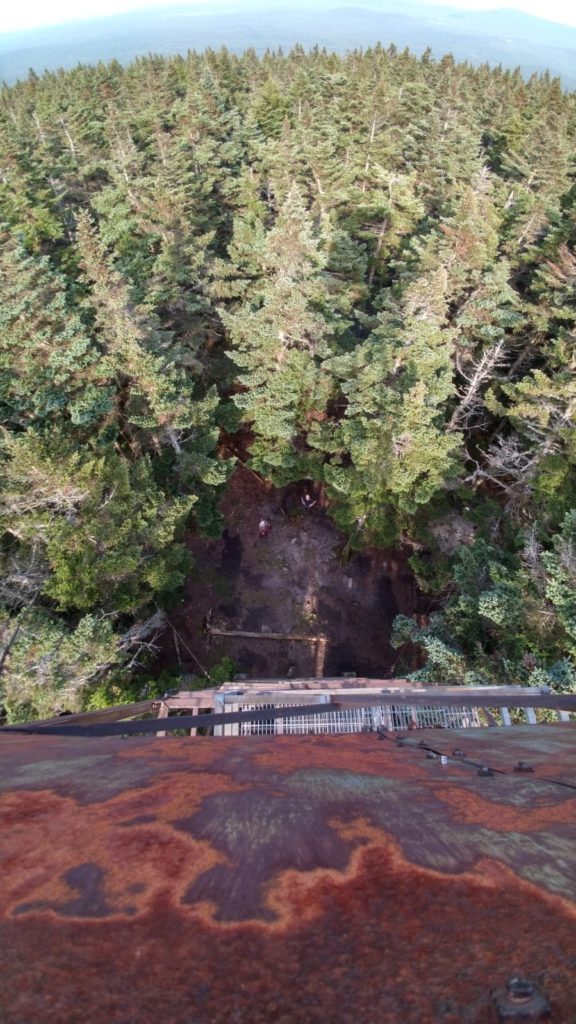
How long did it take to complete the trail?
My entire journey took exactly five and a half months or 165 days. I started at Springer Mountain in Georgia on April 10th and finished on Mt. Katahdin in Maine on September 25th.
What was your first meal back home?
Pizza and ice-cold beer.
What advice would you give to a fellow alum thinking of attempting the AT?
The one thing I heard the most from people along the trail that stopped me was that “they always wanted to do it” (or something like it) and that they admired me for following my dreams. This was usually followed by something along the lines of “I never was able to” or “I couldn’t” for reasons like jobs, family, or life in general.
The best advice I can give is to anyone considering hiking the Appalachian Trail, embarking on any big journey, or making any other big, life-changing decision is that the excuses we give ourselves, no matter how big they seem, are not stopping you. Nothing is stopping you from leaving your job, selling all of your things, saying goodbye to friends and family for a time, and going on a crazy adventure—it’s just the fact that doing these things may not be easy or comfortable that scares most people. That doesn’t mean that it is impossible, and you’d be doing yourself a disservice thinking otherwise. I, for one, would rather be uncomfortable than regretful.
Be bold, go all in, and approach all things in life the same way. You’ll be glad you did.

